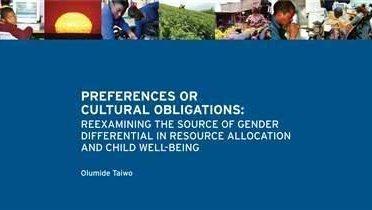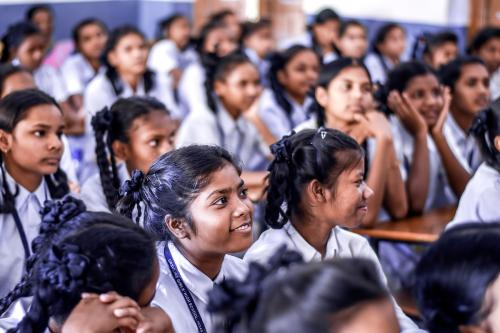ABSTRACT
The empirical literature examining intrahousehold resource allocation finds that mothers’ incomes have a larger impact on the well-being of children than fathers’ incomes. Although this finding is amenable to various interpretations, the most widely held view is that, as a matter of preference, women care more about the well-being of children than do men. This implies that policies that reallocate resources toward women are beneficial for the quality of children’s well-being. Many policy interventions are targeted toward a specific gender in part due to this interpretation.
Although the findings in this literature are largely not disputable, given the frameworks from which the results are derived, the interpretation can be questioned. Although most of the findings are obtained from analyzing data collected in developing countries where household structures depart from the Western model, the data sets have been analyzed within the context of two-person, independent households. Interdependence among households and interhousehold resource transfers in lineages and extended families that are widespread in developing societies are incompatible with the independent household model.
In this paper, I argue that the finding of differential effects between fathers’ and mothers’ incomes is not necessarily an outcome of differential preferences. I demonstrate through a simple framework of extended families that the outcomes are consistent with models of household behavior where fathers and mothers care equally about child well-being but fathers play an expanded role in extended families. I draw data from societies with different systems of family organization to emphasize the importance of social contexts in interpreting empirical findings related to household behavior.


